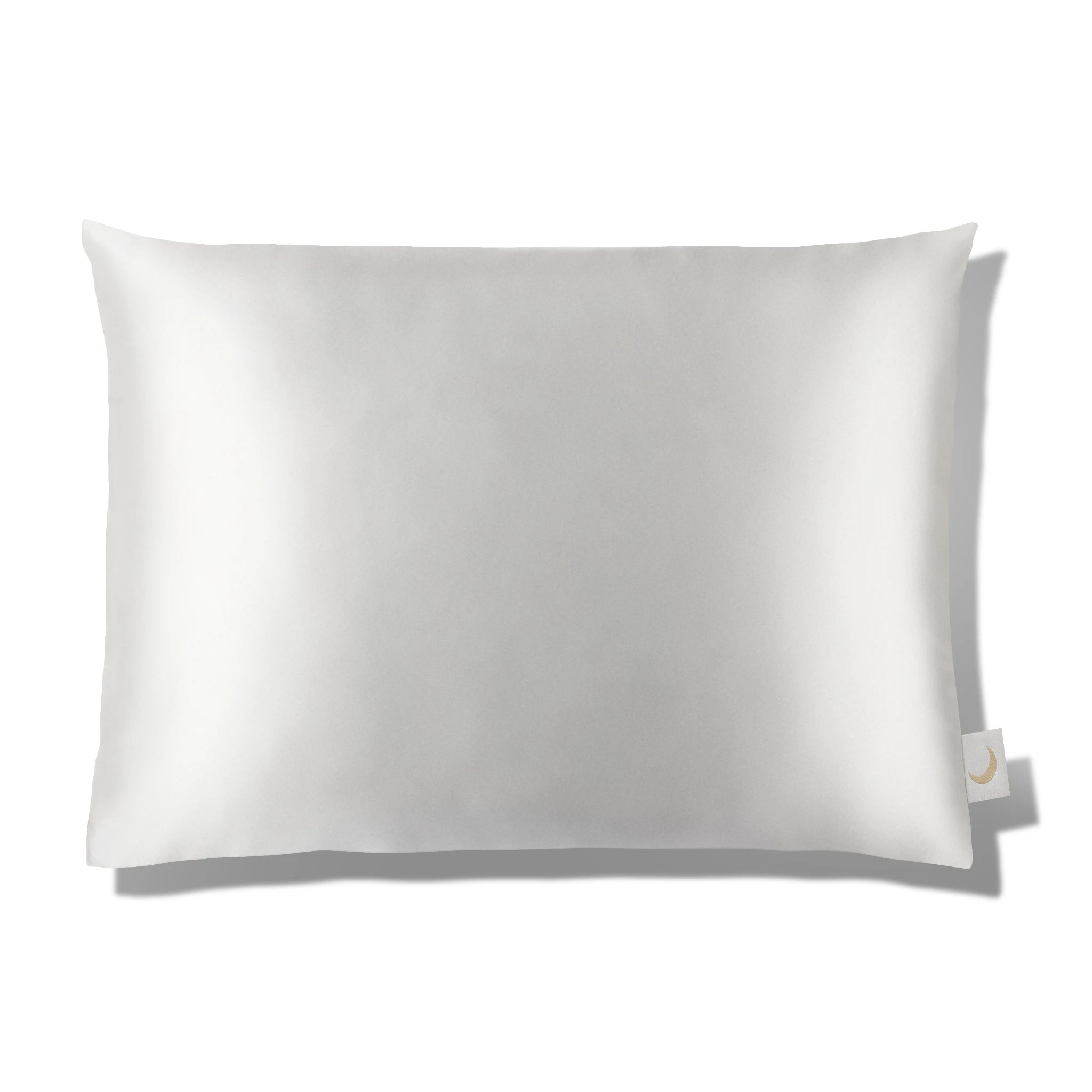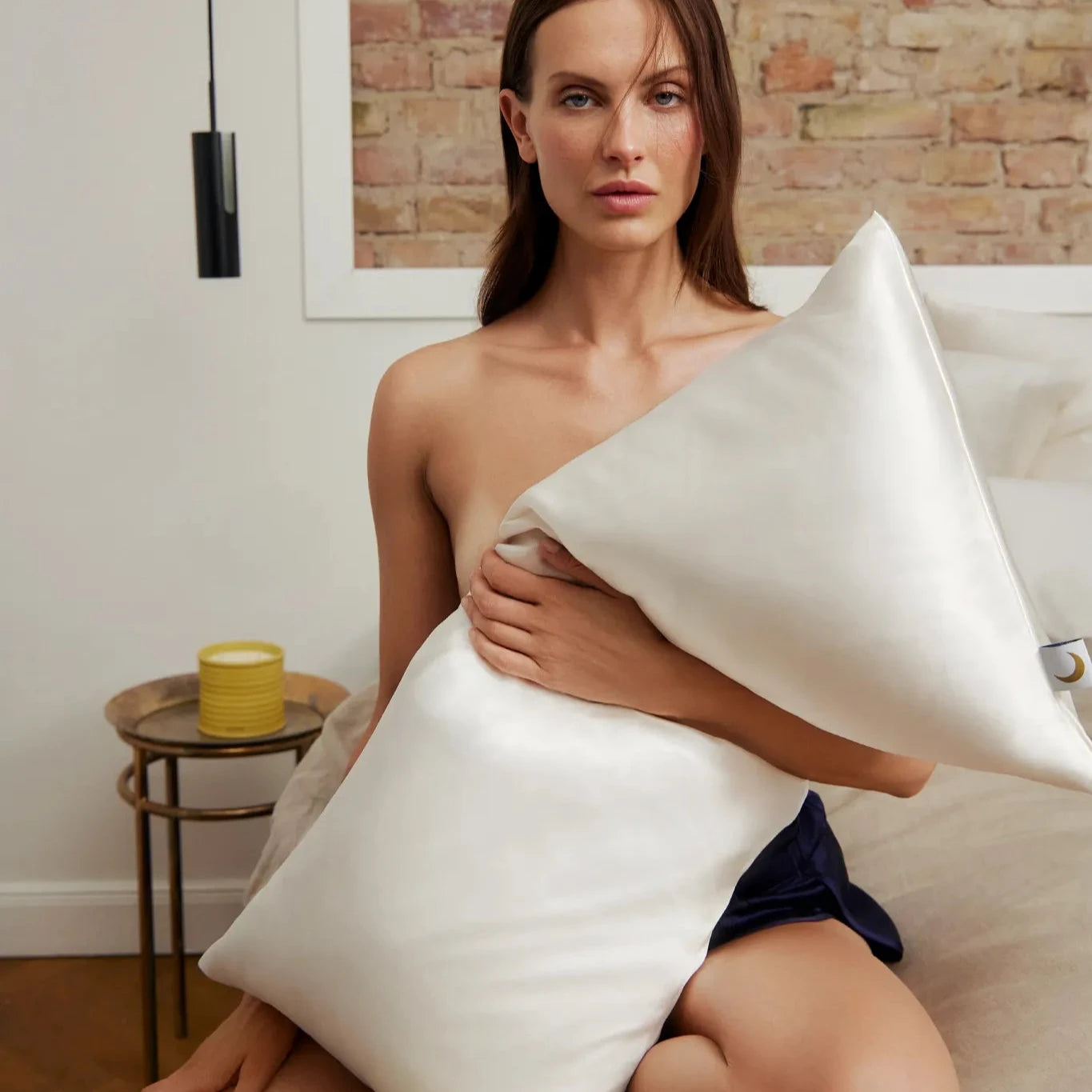At Moonchild, we always try to live by the words of the late fashion icon, Vivienne Westwood: 'Buy Less, Choose Well, Make it Last'.
Our approach embodies the slow fashion principles behind this iconic phrase.
The Art of Slow Fashion: How to Create a Timeless and Sustainable Wardrobe
Buy Less
In a society driven by consumption, we already own far more than we could ever need. A market of endless choice and cheap, fast fashion ‘fixes’ simply perpetuate this issue.
Choose Well
By choosing premium quality products, made with minimal environmental impact and based on fair and transparent supply chains. Better still, choose natural fibres, which are biodegradable and better for the skin.
Make it Last
This aspect is key to responsible consumerism. Think in terms of ‘price per wear’ – for every extra season we use a garment, we reduce its carbon & water footprint by around 20-25%. What’s more, the vintage clothes market bears testament to the fact that quality and craftsmanship stand the test of time.
Slow Fashion - A Fashionable Way to Save the Planet
Basking in that post fast-fashion-fix glow, it can be easy to forget the multifaceted consequences of an impulse buy.
Natural resources
With ever greater quantities of textiles being produced every year, the impact on natural resources, either in the form of natural fibres (from plants & animals) or resources like water and energy used in the production process, is huge.
Exploitation
Low wages and poor working conditions are a huge issue in the textile industry. Very few of us take the time to question how a t-shirt can cost just €5. Deduct from that the costs of customs charges, transportation costs, raw materials, not to mention profit – it doesn’t take a genius to figure out how much is left to pay the workers!
Pollution during the production process
The textile supply chain involves a lengthy process of chemical and physical transformation. The dying and printing stage are the worst culprits in terms of pollution. In fact, the fashion industry is the second-largest industrial polluter. What’s more, the environmental regulations in many of the countries where fast fashion retailers produce their clothes are less than stringent, resulting in environmentally devastating practices such as pumping wastewater directly into waterways.
Pollution by consumers
Each time we discard a garment, we are creating pollution, especially if the garment in question is made from synthetic fibres. Moreover, every time we wash our clothes, we produce water pollution from detergent & softeners, not to mention the microplastics present in many of the man-made fibres used to make cheap clothing. Naturally occurring fabrics like cotton, wool and the Peace Silk used by Moonchild, are fully biodegradable.
Psychological issues
Fast fashion is a driver of compulsive shopping, making it easier to get a mood-boosting, serotonin-inducing hit of ‘newness’. We are inundated with glossy ads selling aspirational lives that trigger our weak points and suggest that we are but a clothing haul away from our dream lives. As most of us have experienced, the high doesn’t last for long and after just a few days, we are ready to buy something new to feel better … again.
Mindful Consumerism - From Disposable to Durable
It’s clear that what we wear and the buying decisions we make can make a huge difference. That’s why we at Moonchild would like to invite you to experience the many sensory benefits and the clear conscience that our premium quality, ethically produced loungewear and sleep accessories have to offer.


















